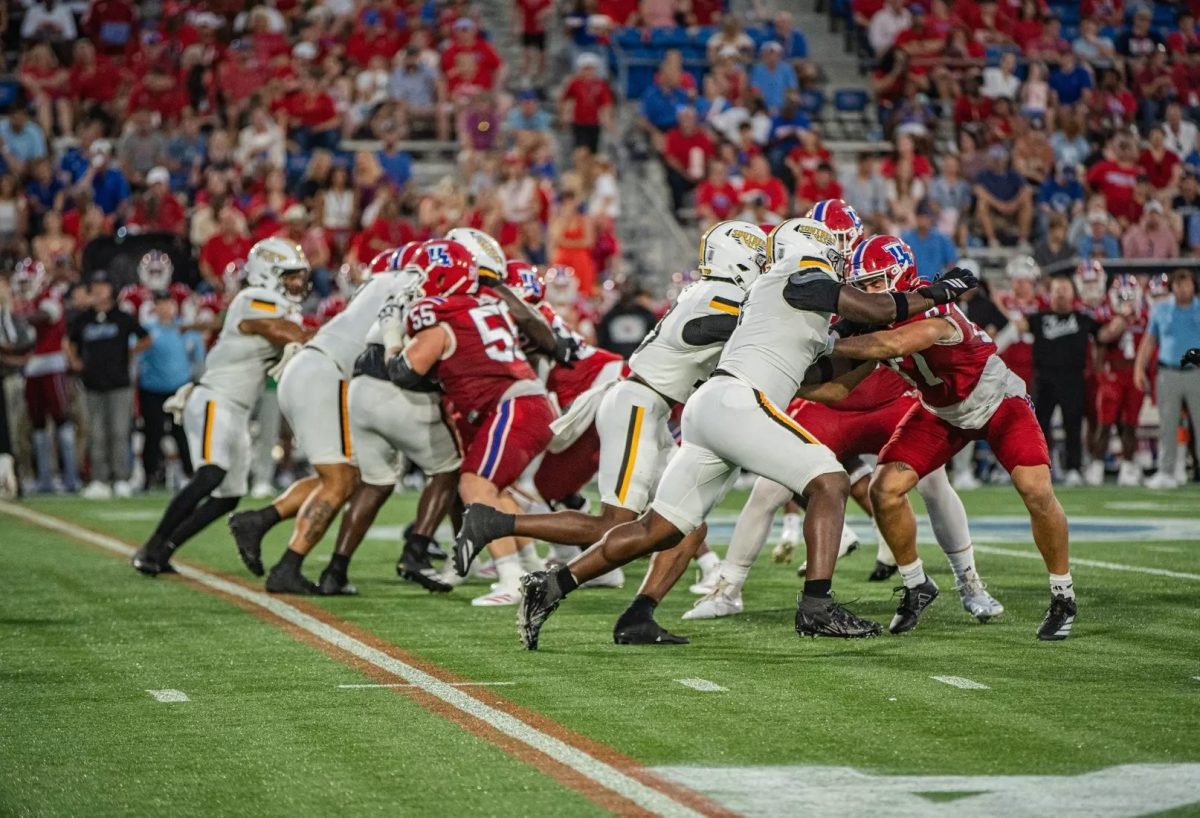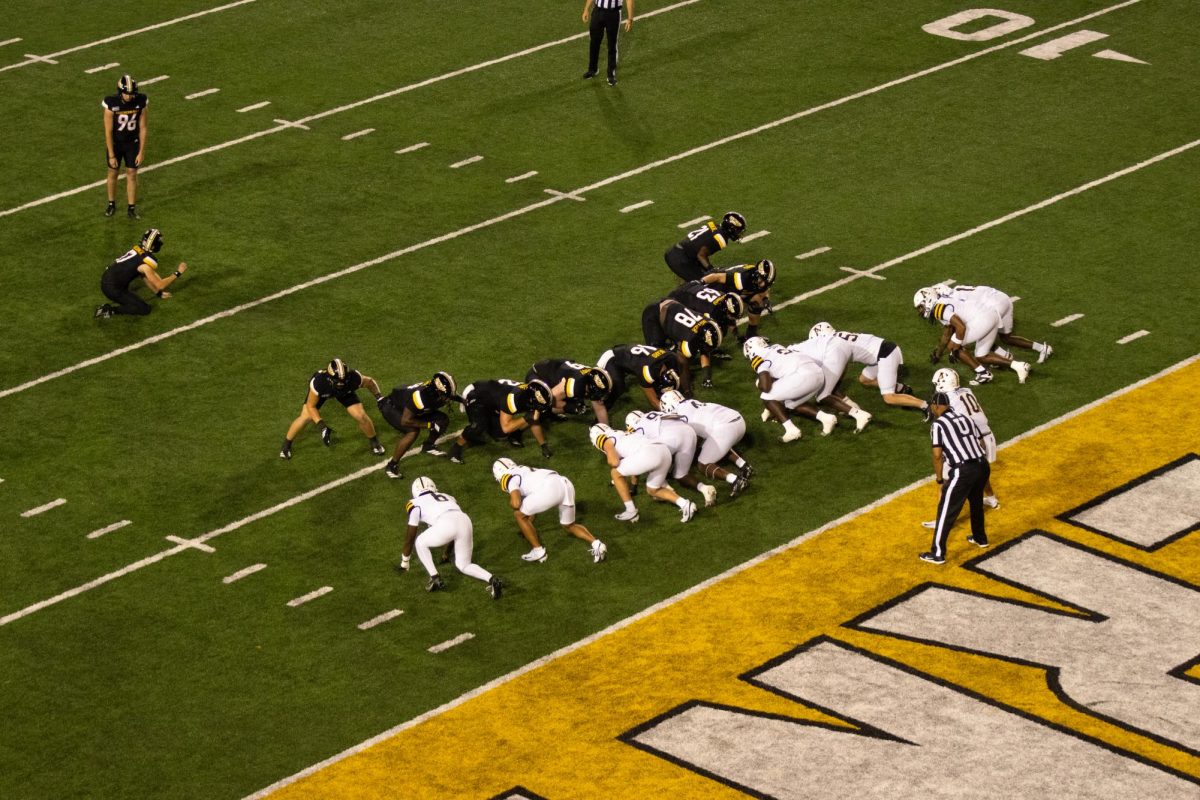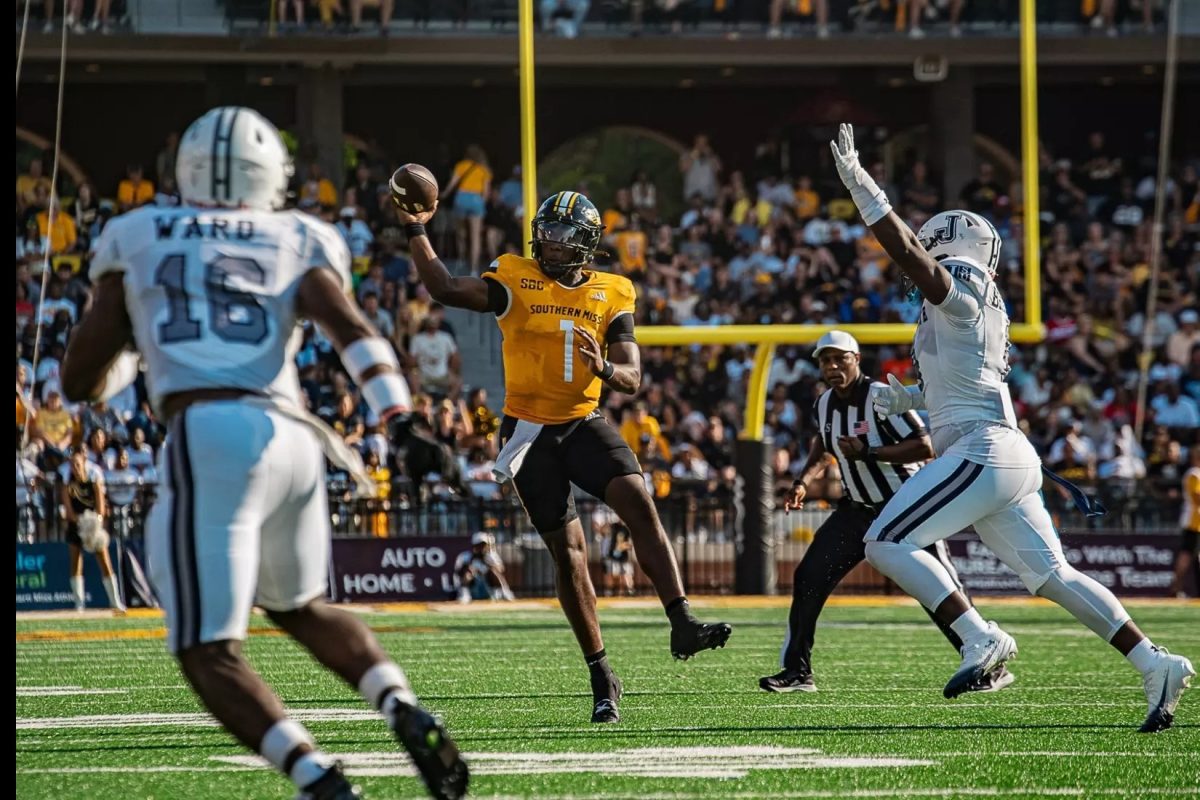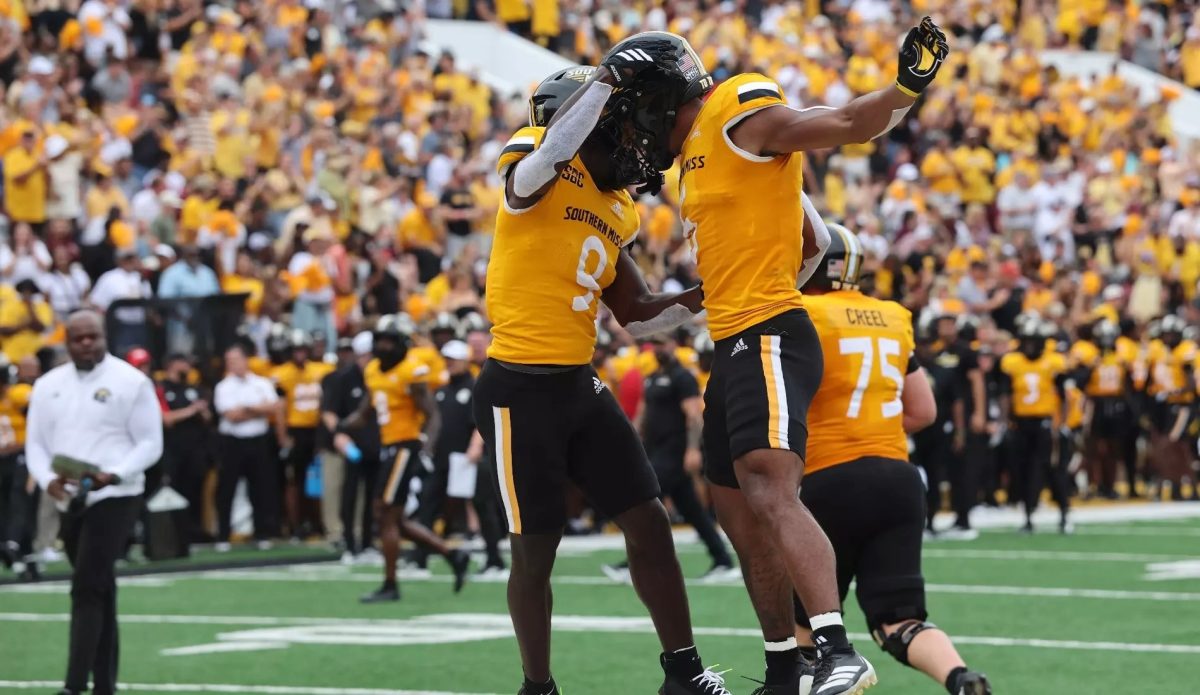To say that last season’s version of Southern Miss football wasn’t good would be a huge understatement.
In 2011, Southern Miss had a 12-2 season capped by a dramatic Conference USA championship and a Hawaii Bowl win.
In 2012, Southern Miss Golden Eagles went 0-12 under first-year coach Ellis Johnson. It was USM’s first losing season in 18 years and the only winless season in school history. To make it worse, Southern Miss was the only Football Bowl Subdivision school without a win.
When all was said and done, fans were left wondering one thing: What happened?
Johnson’s take on the subject
Many people think Ellis Johnson is mostly at fault for USM’s problems last year. Truth be told, Johnson thinks so too.
“I chose not to run the defense or the offense as a head coach,” Johnson told AL.com this summer. “I felt like I wanted to be a head coach of everybody and not just one side of the ball.”
It was a decision he says he regrets. But according to Johnson, the biggest problem Southern Miss faced was injury.
“We were a capable team and still the injury bug started happening,” Johnson said.
His offensive playbook was supposed to include a big role for the tight ends. But all four tight ends were lost to injury. Even worse, Johnson could never find one quarterback to lead the offense.
Chris Campbell injured his neck and shoulder while Ricky Lloyd tore his ACL. Due to these and other injuries, as well as inconsistency, Johnson ended the season having played five different quarterbacks, including four starters.
Overall, Johnson believed his team never improved.
“By the time we got through the front part of the schedule, and hit the part of the schedule we really had a chance to make a run, we just weren’t a very good football team,” Johnson said.
Vague answers from those who want to forget
There was a variety of problems that plagued the USM’s football program last season. The defense lost six starters. Four-year starting quarterback Austin Davis graduated and went to the NFL. The staff was entirely new, the quarterbacks were inexperienced or injured and the Golden Eagles just could not find a solution.
Was there anything being done to solve these problems? How were these issues addressed, or not addressed? Why, in the course of 12 weeks, could nothing be done to win just one game?
At Football Media Day on Aug. 3, The Student Printz asked veterans of the 2012 team to explain what happened.
“You can’t really pinpoint what exactly went wrong because coaches had something to do with it, (and) players had something to do with it,” said Alan Howze, a starting linebacker.
For wide receiver Dominique Sullivan: “We weren’t together as a team.”
For cornerback Deron Wilson: “We lost our confidence.”
In general, everyone agreed with Howze’s statement. According to these players, it is hard to tell precisely what happened.
“As much as we blame it on the coaching, the players didn’t play,” said potential starting quarterback Cole Weeks.
“We may have not produced, the coaches may not have done a certain thing to help us out, but it was a group effort. A lot of things went wrong, so you can’t really narrow it down to one.”
The Printz made a few calls to some important 2012 players: wide receiver Tracy Lampley and offensive lineman Joe Duhon. According to them, of the numerous things that went wrong last season, the four biggest were staff problems, the quarterback situation, miscommunication and the Golden Eagles’ game plans.
The staff changes
“Well it all started out with the coaches change,” Lampley began. “Once they came in and we got the new coaching staff and everything, we were trying to get the feel and know the coaches … And I think it all happened kind of fast for everybody.”
Worse than that, Lampley said, “I don’t think everybody as a team really bought into the new coaching staff. That’s just being honest.”
Joe Duhon agreed with Lampley’s remark. “At first everybody was all for it,” Duhon said. “Then after a while, everybody was like, ‘It’s not right!’’
According to Duhon, the primary problem with the coaching staff was lack of conditioning.
“Spring came, summer came, and it was horrible…” Duhon said. “The players felt that the strength conditioning was horrible, and we knew it. And bam! We had ten hamstring pulls, ACL injuries after ACL injuries, we had just no conditioning and it was bad.”
Quarterback situation
“We had four starting offensive linemen from the last season when we went 12-2. We could run the ball against anybody,” Duhon said. “But (in 2012) once everybody figured out we could only run the ball, and we can’t pass the ball, then they stuffed us every time.”
Lampley took into account the injuries USM’s quarterbacks received. “Every time we got a rhythm we wanted, something would happen, then someone else would have to come in,” Lampley said. “Then if something else happened we’d have to rotate in another quarterback, so we just never really found a good rhythm with a quarterback that could really take charge of the offense.”
“If we had a definite quarterback who could really pass the ball, then we would’ve been fine,” Duhon said. Lampley was in agreement, but added, “We did the best we could with what we had.”
Miscommunication
“I don’t really think the players and the coaches were on the same page a lot of the time,” Lampley recalled. “We had to teach ourselves things on the go.”
The lack of communication between players and coaches was something Coach Johnson needed to work on, according to Duhon.
“He (Johnson) has got to listen to his players,” Duhon said. “The staff was too old school, and, it’s not the ‘80s. You can’t win doing old school right now, unless you’re Alabama.”
Lampley believes the players could have done their part too, of course. “I think the communication could’ve been better, for the coaches and for the players,” Lampley said.
USM’s game plans
For the most part, Joe Duhon did not think Southern Miss’ game plans and strategies were up to par and he was very outspoken about his opinions.
In regards to the Nebraska game and games thereafter, Duhon said, “When Alford was in the game, we were gonna run the ball. When Chris Campbell was in the game, we were gonna pass the ball. My little nephew could figure that out, and he’s eight.”
Duhon respected Nebraska’s play-calling, saying that the Cornhuskers simply out-coached Southern Miss. But throughout all 12 games the game plan never improved.
“We tried to win every game with a sh-tty game plan,” Duhon said.
2012’s impact
The 2012 season was nothing short of disastrous. All of these factors created what current athletic director Bill McGillis calls “the perfect storm.”
2012 was something different for everyone. For last year’s coaches, it’s a blemish on their resumes. For current players, it’s something to try to forget about and move forward. For fans, it’s a disappointing season that will hopefully fade into history.
But for last year’s seniors, it was something entirely different.
“I took it as a life lesson,” said Duhon. “Me being at Southern Miss, we won every year for the past four years I was there. It actually humbled me, gave me a life lesson that you can’t win everything that you come up to. You gotta take some losses. And in 2012, we took 12 losses.”
“After going 0-12 I think it made us get closer with each other, because you figured out who was with you through that rough time,” Lampley said. “And during that time we still had support. But through it all we came together as one. It really humbled us down.”
In closing their interviews, Duhon and Lampley spoke emotionally about the upcoming season.
“I’m just ready for the new season right now. Getting back to the old Southern Miss tradition,” Duhon said.
“I really want to just give an apology to the fans of The University of Southern Miss on going 0-12,” Lampley said. “I know that was something we were not expecting, but at the same time we can’t hang our heads low about it. That’s what’s gonna make the next program so much better because nobody’s gonna want to go 0-12 anymore… I hope they get back on the right track and have a winning season.”





























